Google API Leak: SEO Insights & Expert Perspectives
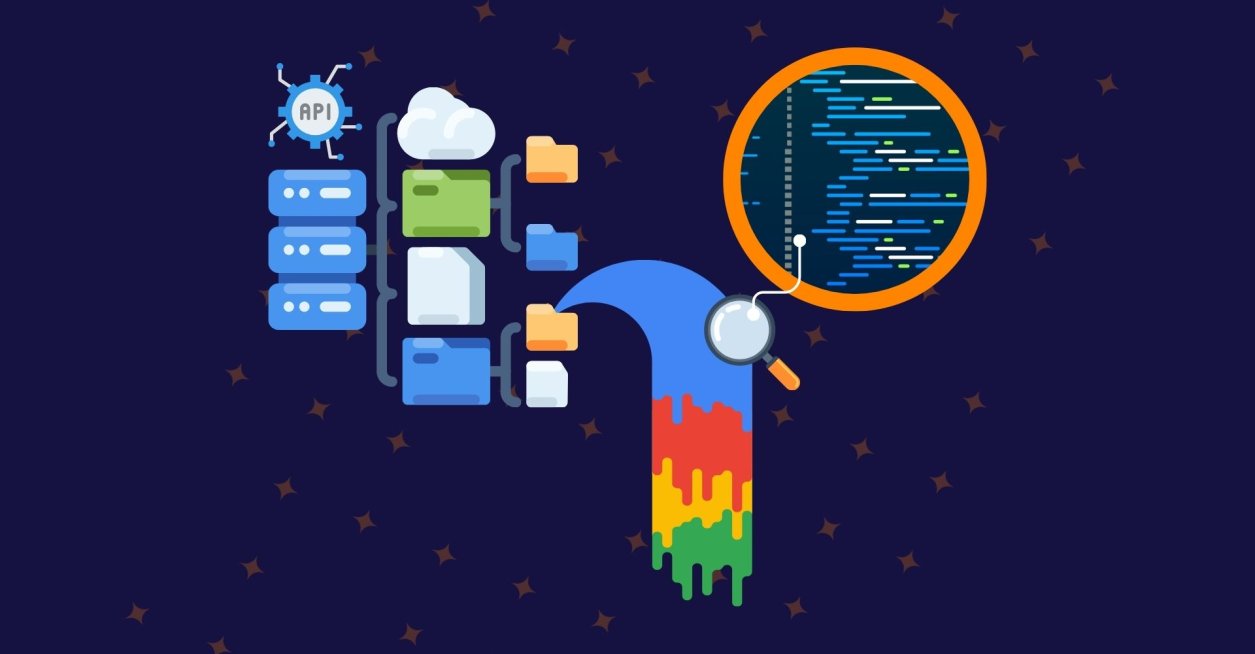
Get insights and advice from a survey of 28 industry experts on the recent Google API leak.
Takeaway: In this study, we surveyed 28 SEO experts to gain insights into their perceptions and opinions regarding the recent Google API leak.
The leak, which exposed thousands of pages of internal Google documentation, has sparked intense debate within the SEO community about its significance and potential impact on search rankings and visibility.
Through a series of questions, we explored the respondents' thoughts on the leak's implications for the SEO industry, its confirmation of long-held SEO theories, and its influence on future SEO strategies and interactions with Google representatives.
The findings reveal that while there is a mix of reactions, the majority believe it reinforces existing best practices.
STAY AHEAD OF THE CURVE—GET A BESPOKE SEO AUDIT
Most significant insights and takeaways on the Google leak
- The majority of respondents (60.7%) believe the Google leak suggests Google may have been misleading about certain aspects of its search algorithms, but it doesn't definitively prove dishonesty.
- A significant portion (57.1%) think the leak may somewhat erode trust between Google and the SEO community.
- In terms of impact on SEO strategies, the top areas likely to be reevaluated are user experience and engagement (46.4%), link building and external signals (35.7%). 28.6% don't plan on changing anything at all.
- While some believe the leak doesn't change much as core SEO principles remain the same, others think it provides valuable insights that could refine strategies and spur debate within the community.
- Many respondents have already been taking Google representatives' statements with a grain of salt, and they don’t see that changing in the future.
- The general sentiment is that while the leak is significant and insightful, it shouldn't be seen as a prescriptive document. The focus should remain on creating high-quality, user-centric content and experiences to build authority and trust.
Overview of the Google API leak
The recent Google API leak refers to a significant breach where 2,500 pages worth of internal documentation was exposed. Now, there are two camps: one group says this gives us a whole lot of insight into what Google uses for ranking, and the other group says this may not be related to Search at all.
One thing they can agree on? This is at least interesting.
If you want to look into it, here’s the link to the leaked API document.
Timeline of events and implications for search rankings and visibility
The documentation was uploaded to GitHub last March and was removed on May 7 (although it has been circulated before removal since Hexdocs already indexed it). The leak was brought to public attention when Erfan Azimi reached out to Rand Fishkin to discuss the document.
On Sunday, May 5th, I received an email from a person claiming to have access to a massive leak of API documentation from inside Google’s Search division. The email further claimed that these leaked documents were confirmed as authentic by ex-Google employees, and that those ex-employees and others had shared additional, private information about Google’s search operations.
—Rand Fishkin, CEO and Co-founder at Sparktoro
Rand reached out to Mike King to help review the document, and since sharing this bomb of a piece saying we get to learn secrets from the Google algorithm, various SEO experts have since been dissecting the potential implications of the information contained within the 2,500 pages.
The API documentation lists numerous attributes and modules, potentially offering a behind-the-scenes look at the data elements Google uses internally in its products. Whether it’s directly related to Google Search, we aren’t sure. Here’s a quote from Search Engine Journal clarifying the API leak:
The leaked document shares relation to a public Google Cloud platform called Document AI Warehouse which is used for analyzing, organizing, searching, and storing data. This public documentation is titled Document AI Warehouse overview. A post on Facebook shares that the “leaked” data is the “internal version” of the publicly visible Document AI Warehouse documentation. That’s the context of this data.
—Roger Montti, Staff at Search Engine Journal
Some experts argue that just because the documentation doesn't exclusively cover Google Search products, doesn't mean it's not worth reviewing. This is particularly true because the document contains attributes related to ranking.
Although the documents do not directly outline how Google weights these elements in its ranking process, they provide a window into the potential factors that could influence search rankings.
Rationale for the study
It’s an understatement to say the news about the Google leak blew up once Fishkin and King published their findings. Everyone is talking about the leak, whether doing deep dives, discussing it in an SEO conference, publishing LinkedIn posts, tweeting threads, or discussing it on Reddit.
People are angry and throwing a lot of accusations about lying towards Google—but more especially towards the Search liaisons.
Other folks are saying it’s justifiable that Google doesn’t tell us everything about Search, or else SEO would manipulate the SERP and make a business out of it.
All this to say, there is a lot happening right now.
So I created a survey to help us sift through the noise. 28 experts shared their thoughts.
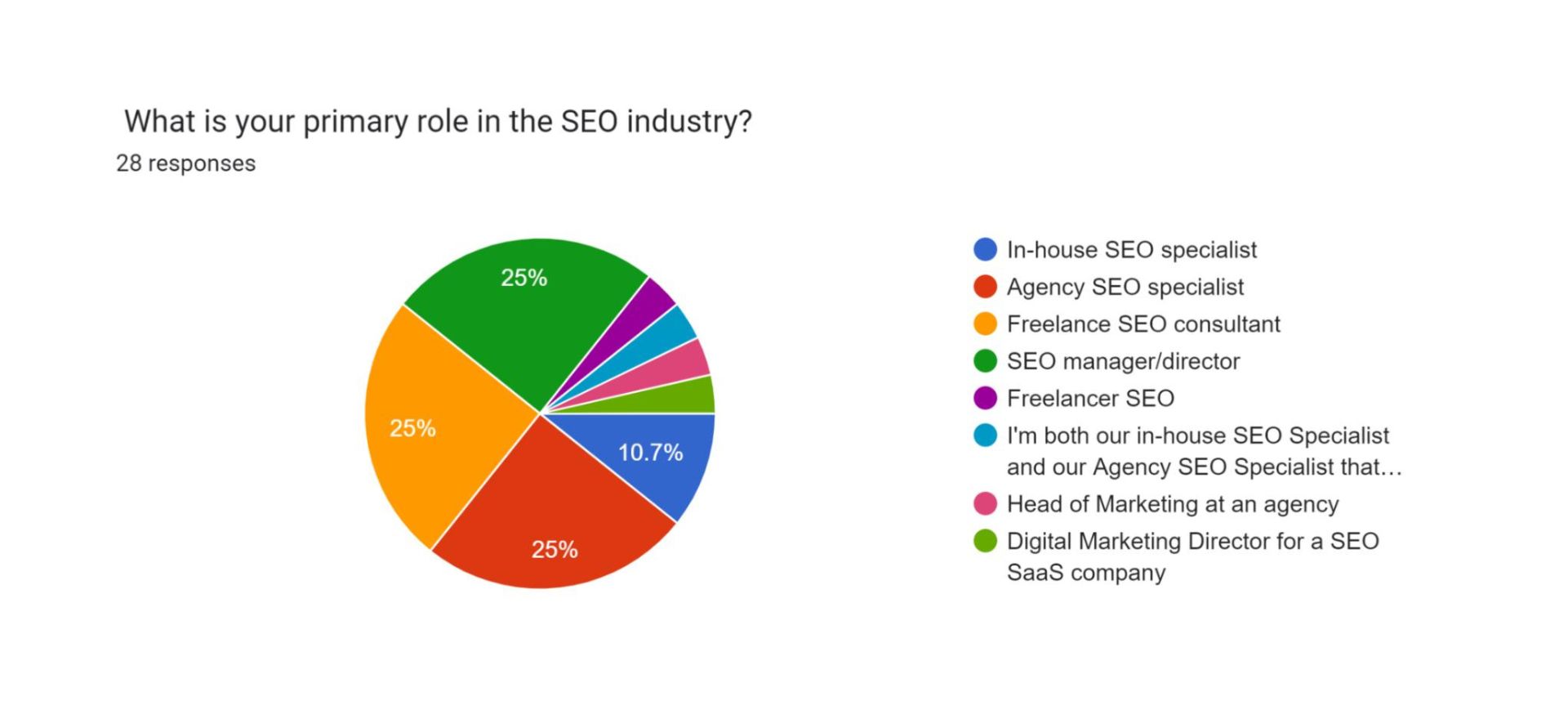
Key findings from the study
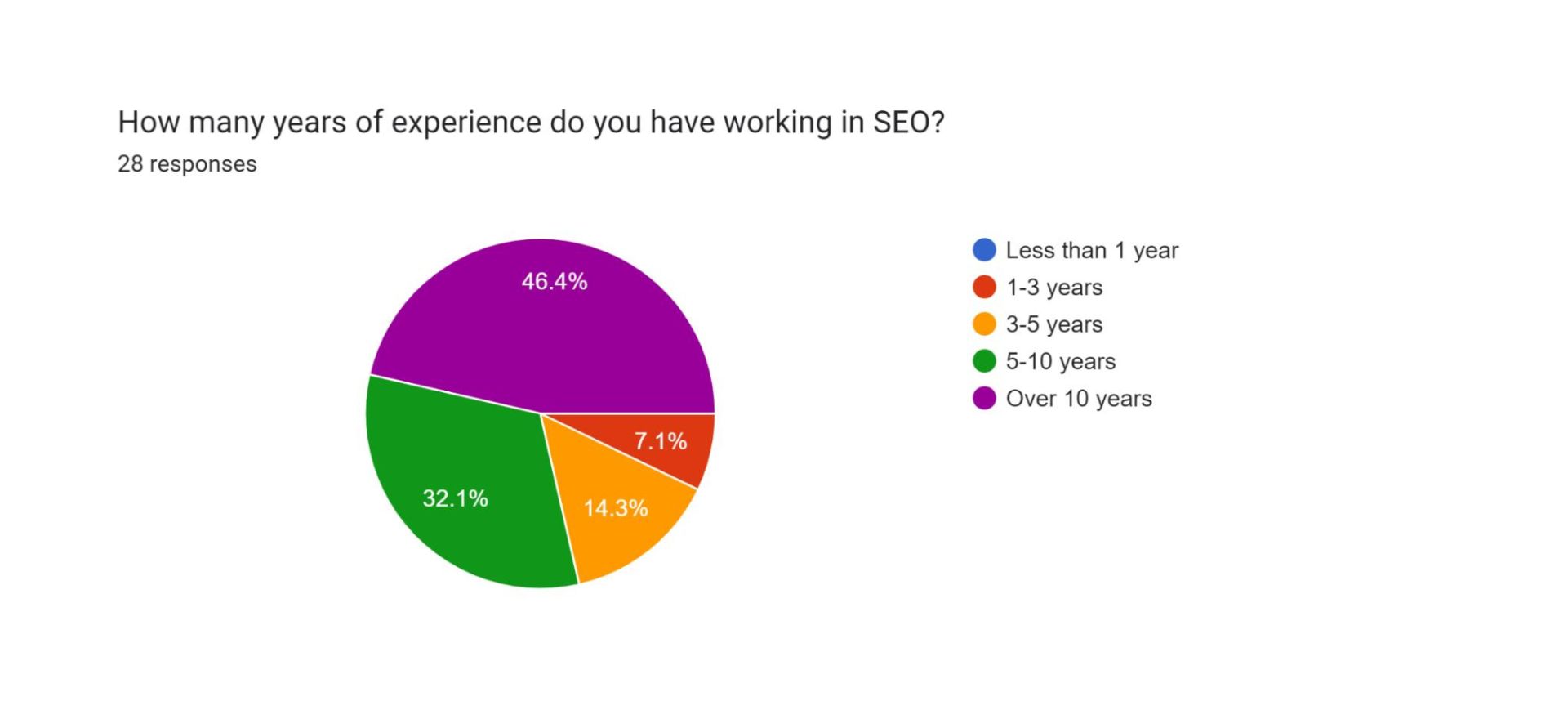
Common themes and patterns in responses
After analyzing the survey responses, several common themes and patterns are evident. These will be discussed in detail later.
- Confirmation of SEO theories: Many respondents feel the leak validates and confirms various long-held SEO theories and suspicions, such as using user engagement data and domain authority for ranking purposes. It’s important to note that I had chosen the SEO theories for them to vote on— these were ones I saw time and time again pop up in the discussions.
- Erosion of trust: A significant portion of respondents believe the leak may erode trust between Google and the SEO community to some extent, as the information seems to contradict past statements made by Google representatives.
- Importance of user experience: Respondents consistently emphasize the importance of focusing on user experience, engagement, and creating high-quality, user-centric content to achieve long-term SEO success.
- Opinions on the impact: While some respondents believe the leak gives insights that warrant a revisit of current strategies, the majority believe it doesn't fundamentally change core SEO principles and best practices.
- Skepticism towards Google: Many respondents already maintain a healthy level of skepticism towards statements made by Google representatives. Several respondents mentioned that they have always taken Google's public information with a grain of salt or viewed it through a critical lens, although others did say they would start testing more from this point on. This shows that skepticism towards Google's public statements is not necessarily a new sentiment arising from the leak, but rather a pre-existing mindset.
- Reinforcement of holistic SEO: Many respondents focus more on the importance of maintaining a holistic, user-centric approach to SEO rather than emphasizing caution in making changes based on the leak. However, some responses do suggest that the leak should be viewed as insightful rather than prescriptive and that SEO professionals should continue to focus on creating high-quality content and experiences.
Significance of the Google leak and perception of the respondents
In this section, I aimed to gauge the respondents' opinions on the importance of the Google API leak and its potential impact on the relationship between Google and the SEO community.
When asked about the significance of the leak for the SEO community, 50% of respondents considered it "very significant," while 28.6% found it "moderately significant." This suggests that the majority of the surveyed SEO professionals believe the leak provides valuable insights and could have substantial implications for the industry.
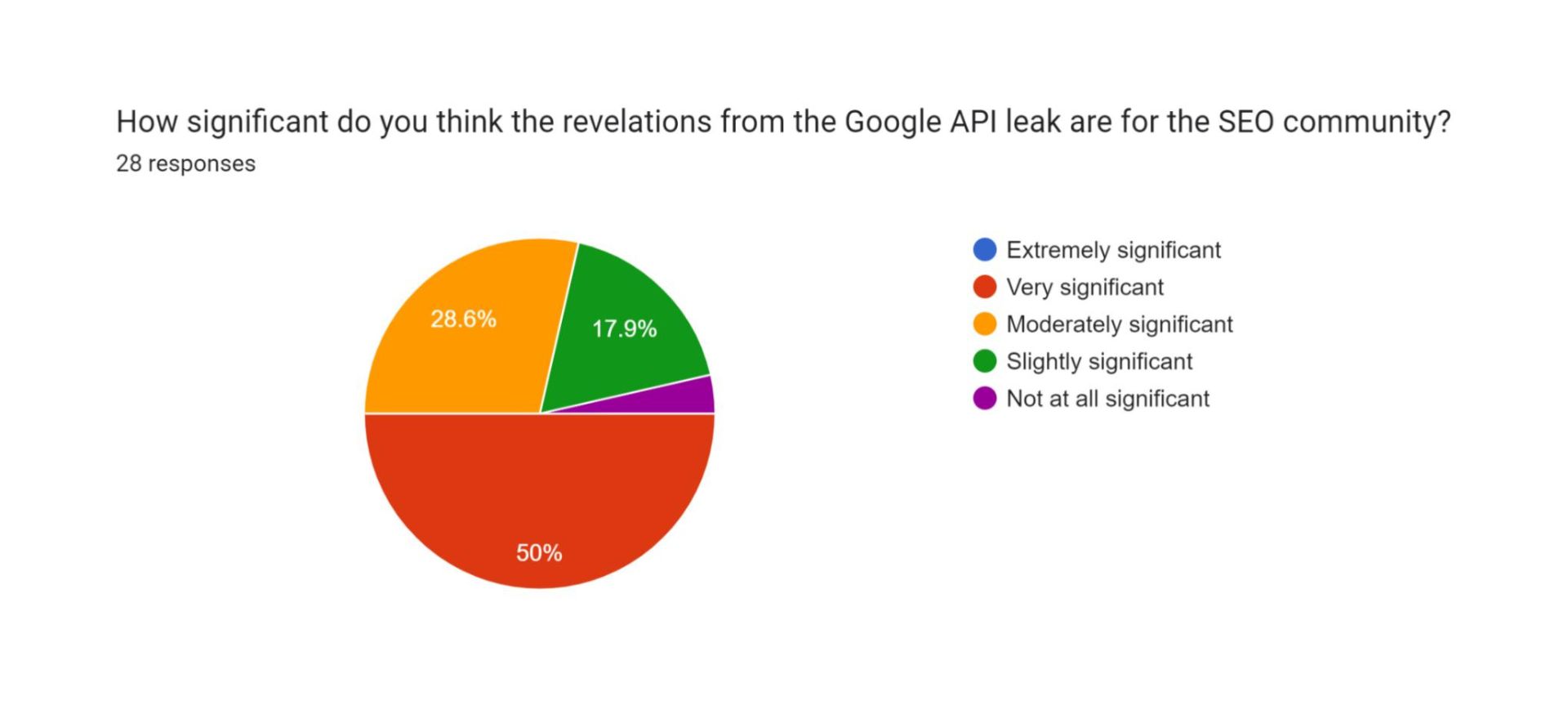
However, when asked if the leak definitively proves Google has been dishonest or misleading about certain aspects of its search algorithms, opinions were more divided. 60.7% of respondents said the leak suggested Google may have misled, but it didn’t definitively prove dishonesty.
Only 21.4% felt that the leak clearly showed Google was being dishonest. This indicates that while many SEO professionals find the leaked information significant, they are cautious about making definitive conclusions about Google's integrity based solely on this data.
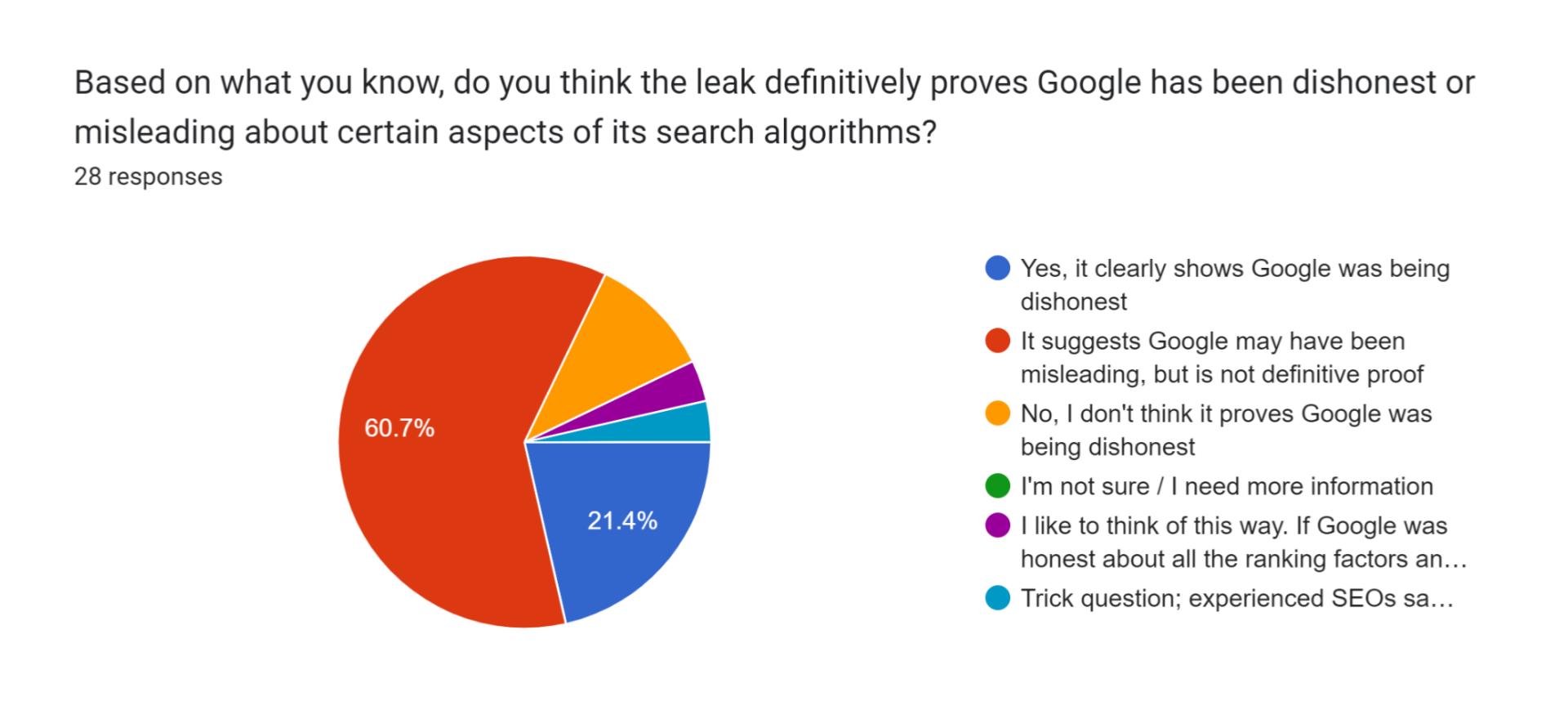
Regarding the potential impact of the leak on trust between Google and the SEO community, 57.1% of respondents believe it may somewhat erode trust, while 21.4% think it will damage trust a lot. This suggests that the majority of the surveyed SEO professionals expect the leak to have a negative impact on the already complex relationship between Google and the SEO community.
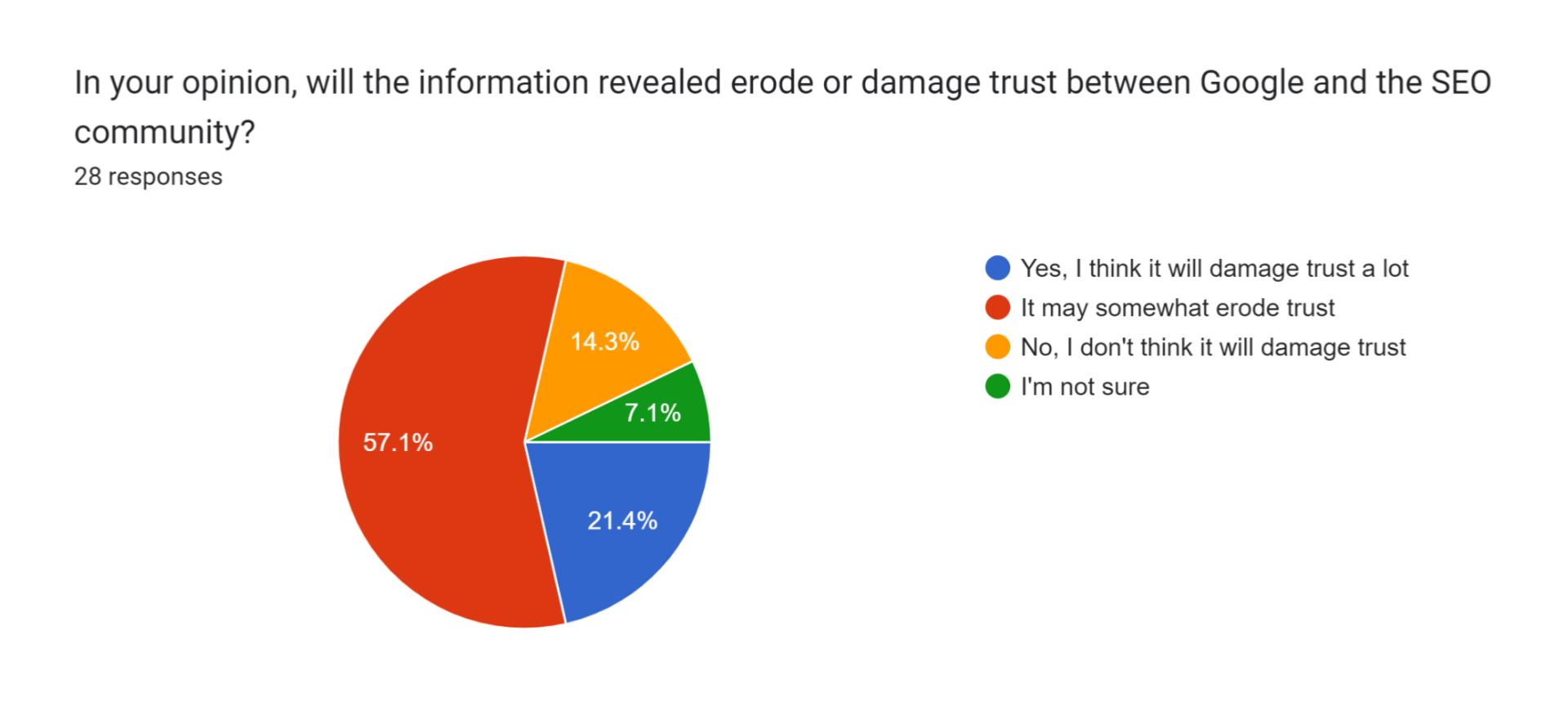
Confirmation of SEO theories and impact on strategies
This section of the survey focuses on the extent to which the Google API leak validates existing SEO theories and how it may influence SEO strategies going forward.
I will reiterate here what I said earlier—I had chosen the SEO theories for them to vote on. These theories were the ones I saw time and time again pop up in the discussions.
I asked respondents to rate their agreement with several SEO theories on a scale from 1 to 5. The results show strong agreement (ratings of 4 or 5) among respondents for the following theories:
- Google uses click data and user behavior for rankings (85.7%)
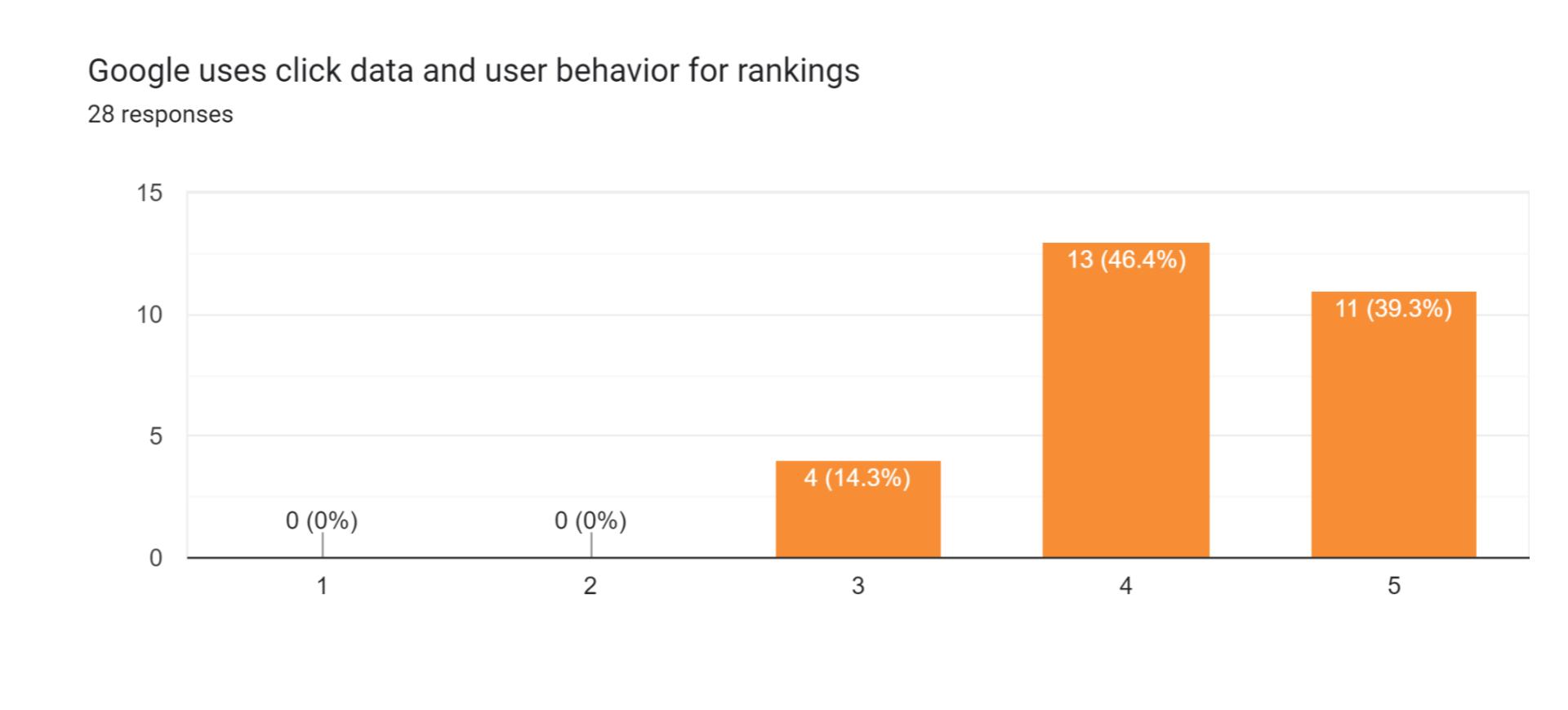
- Google has a form of domain authority (71.5%)
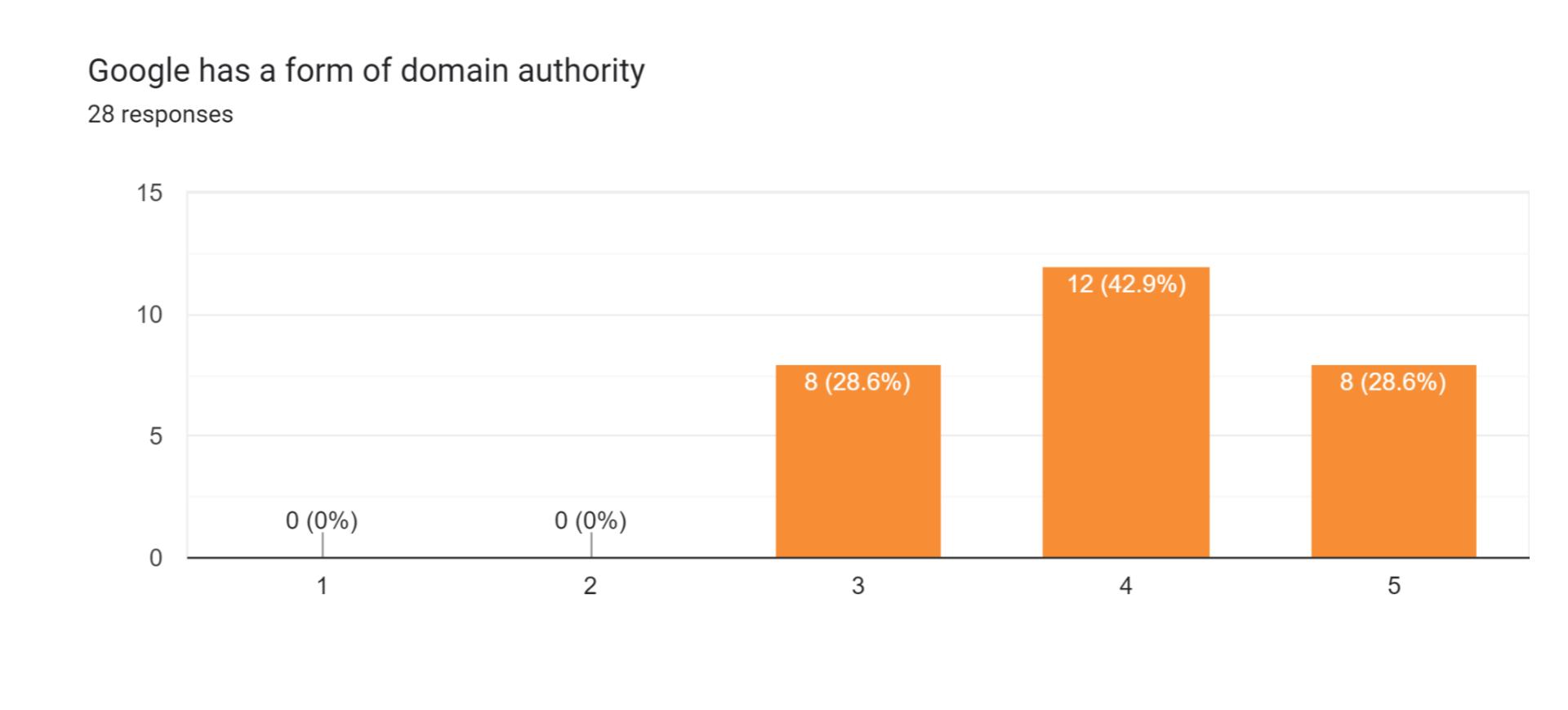
- Google uses Chrome data for ranking purposes (75%)
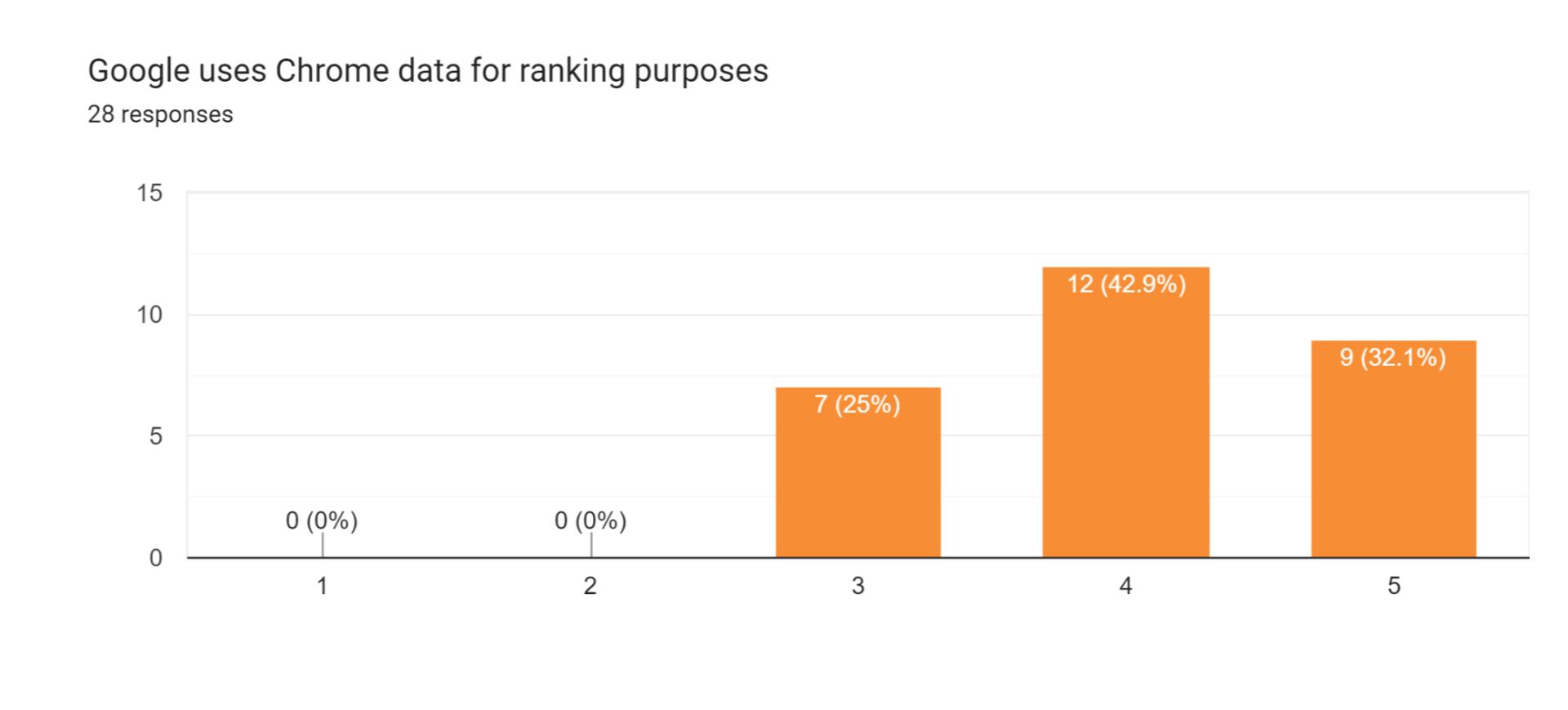
- Google has a "sandbox" for new or untrusted sites (57.1%)

The high percentages of agreement suggest that the leaked information aligns with and confirms many widely held beliefs within the SEO community.
However, the theory that authorship matters in E-E-A-T received a more mixed response with only 50% of respondents giving it a 4 or 5.
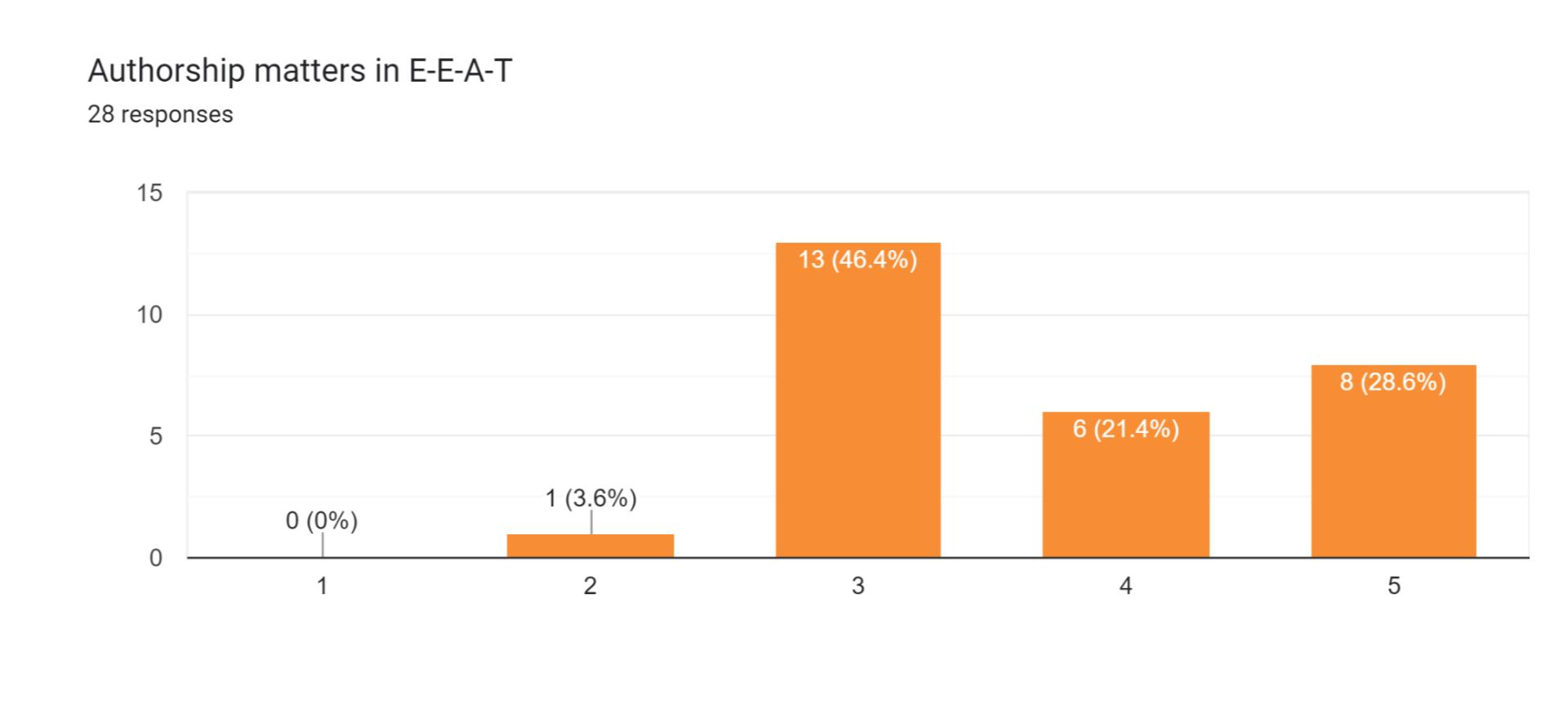
When asked about which aspects of their SEO strategy they are most likely to reevaluate or change based on the leak, respondents' top choices were:
- User experience and engagement (46.4%)
- Link building and external signals (35.7%)
- No change (28.6%)
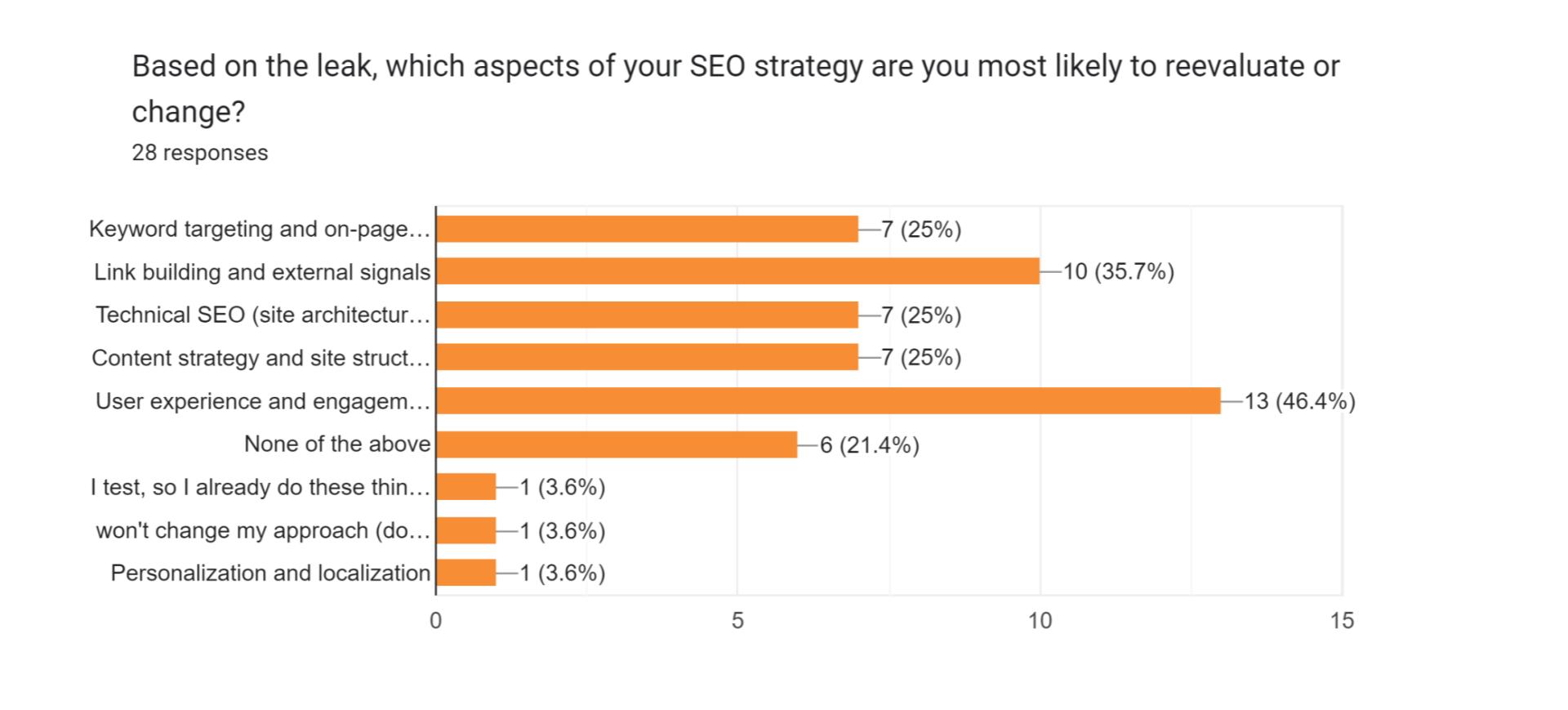
These results indicate that the leak may prompt SEO professionals to place greater emphasis on user experience, engagement, and link-building strategies.
However, it's worth noting that a total of 28.6% of respondents said they would not change any aspects of their strategy, suggesting that some SEO professionals believe the leak does not alter their current approach.
In the next section, you'll hear directly from the experts about the leak.
The most surprising revelation from the Google API leak
Nothing here really surprised me. Even if Google has "lied" or been misleading about disclosing specific ranking factors, the underlying fundamentals of SEO are still pretty much the same. Create good content that is easily crawlable but also serves the user and provides value. Focus on growing your overall brand, authority, and expertise. These are the building blocks of trust.
Of course Google doesn't want to say, "oh yeah we do our rankings based on X and here's exactly how we measure that," because the SEO world is full of short-sighted hucksters who will immediately look for ways to exploit the algorithm rather than invest in long-term and sustainable strategies.
—Tyler Hakes, Strategy Director & Principal at Optimist
The idea that Google can actively restrict the number of pages on a SERP of a specific type. We often categorise the search intent of a query by the kind of results that Google returns on the SERP (blog posts = informational, product pages = transactional etc.) so knowing that they are trying to diversify this in certain cases is really interesting to me.
—Jack Chambers-Ward, Marketing and Partnerships Manager at Candour
The mention of twiddlers and how the modifiers can be applied to any number of facets within the retrieval part of the process for sorting and ranking value where quite interesting. It's not like there was anything actionable there that folks can take away other than optimizing content for users will ultimately reward the producer. Knowing that Google can tweak any number of these at each update or add additional twiddlers to existing ones as well as the weighting values for each signal make it almost impossible to know how or where they are applied at to optimize for any specific value. It's nice to know but not like there's a specific aspect that folks can hone in on.
—Salvatore Surra, Director of SEO & Content at Seamless.AI
I was surprised and still remain confused about the badbacklinksPenalized feature. Navboost and the existence of some kind of siteAuthority metrics,albeit likely not very close to proprietary tool metrics, were kind of expected. But bad backlinks stumped me a bit. I'm still convinced it's not the same as 'toxic' links but even seeing anything that could be related to it is weird.
—Emina Demiri-Watson, Head of Digital Marketing at Vixen Digital
There are some big revelations, but I'd argue that most SEOs would find many of them understandable or sensible. In particular, I keep thinking about the reference to estimating the 'effort' it takes to create a page in relation to judging 'pageQuality'. Is this where quality images and supporting designs show their value? Is this helping to support the assessment of quality content? Are utilities built to improve customer experience judged based on the effort to create them? The more I think about it, the more fascinated I become.
—Quentin Aisbett, SEO Strategist at Searcht
To be honest, I wasn't surprised by much from the leak. But we don't know how heavily any of these attributes are weighted, nor whether they're actually used for ranking or more so for modeling / testing. If we were to find out that click data or site authority are direct and heavily weighted ranking factors—I'd be very surprised. But we don't have that information.
—Brooks Manley, Owner at Brooks Manley Marketing
The thing that surprised me the most from the Google API leak was that Google uses a hidden ranking factor based on user engagement metrics from Chrome. This was unexpected because it contradicts Google's long-standing stance that Chrome data is not used in search ranking algorithms.
—Victor André Enselmann, Head of Marketing at Modeva
Whether the API leak changes anything for SEO
I take the leak as validation to a lot of the testing SEO experts have been doing for years. Many of Google's leaders speak like attorneys; great SEO leaders have understood that what's being said is just as important as what's not being said.
For instance, John Mueller was quoted as saying, “I don’t think we use anything from Google Chrome for ranking. So the only thing that happens with Chrome is for the page experience report, we use the Chrome user experience report data, which is kind of that aggregated data of what users saw when they went to the website, with regards to the page experience specifically. And I think that’s the only thing that we use from Chrome within ranking.” When you read that at face value, the answer about clicks is no. When you read that with an analytical approach, you can see a very different answer.
—Stefanie Morris, CEO at Sisters in SEO
I'm closer to the view that it doesn't change anything for our work. It is of course valuable to have more information, and in some cases fairly reliable confirmation that Google uses certain ranking factors. But most of the revelations lined up with what I already assumed Google was doing. And actually I think that factors like user behaviour and Chrome data would (in theory) help to validate that the top-ranking content best serves searchers. The biggest problems are around Google's honesty in the past, and that they're collecting more data than some users would like. But I don't find it surprising.
— Patrick Whatman, Fractional Head of Content & Inbound Marketing Consultant
Having a background in psychology, I'm taking a more scientific approach with this leak. I honestly don't think we should be jumping to conclusions based on data from 2019—as an industry we need to be engaging critical thinking. Rather than taking everything in the leak at face value, we should be asking questions like does this prove/disprove what I've been doing all along? We should only be making changes if they can be backed up by empirical evidence, so we need to be testing what's been revealed to see if it runs true or not.
—Sarah Chaya Presch, Digital Marketing Director at Dragon Metrics
Whilst the leak revealed some things that Google had previously indicated were not ranking factors, ultimately it doesn't change the rules of SEO. Essentially Google values insightful, focused and unique content written for your end user. Brands need to create high quality content and demonstrate how they’re providing information that’s fact-checked and truthful. This will in turn create engagement and link opportunities. They also need a sound and fast technical base. All of this is good SEO, and always has been.
—Ben Foster, CEO at The SEO Works
Honestly, it's a big enough deal that we NEED to be paying careful attention to it. Yes, it still leaves a lot of questions unanswered - but at the same time, if we aren't paying careful attention to these documents, then we could very well be missing out on something vital.
—Cassie Christman, Technical Writer and SEO at JS Interactive, LLC
I'm somewhere in the middle. It's not a huge deal but it does change things. If nothing else it confirms a few things we all knew already and adds fresh debates. Our strategies can only benefit from those debates. As long as they are civil!
—Emina Demiri-Watson, Head of Digital Marketing at Vixen Digital
I think that the approach to choosing a candidate for the SEO position will change. It’s now difficult to hire a person who doesn’t have his own opinion on this Google Leak, referring not only to Google patents and documentation but also with data from Data Warehouse.
—Oleksandra Khilova, Digital Marketing & PR at Collaborator.pro
It doesn't change much in what I do as I've been telling my clients to optimize the items that were "new" and highlighted in the leak. Here's why: I've seen the sandbox effect with my clients, I have seen the domain authority effect (I work with high authority brands), and I have always recommended clients get the long click (if Bing says they track it, Google probably does too).
If AI can figure out JK Rowling's pen name from her writing style, Google can too... They are tracking authors, and I told my clients to clarify who the authors are with great bios & schema markup.
The only big change that I think helps us make our case about improving UX issues is that we now know that Google uses Chrome data. I'm waiting to see what the community does with the negative link signals in the leak. I disavowed a client's significant negative SEO links before a migration and I'm still glad that I did it, even though the official guideline from Google is that you don't need to use the disavow tool.
—Katherine Watier Ong, Founder and Chief Strategist at WO Strategies
Anticipating the impact of the API leak on SEO and Google relations
I don't think Google really owes us anything, so this won't change anything. I do not feel badly toward anyone at Google; their checks are cut by Google, and Google has a business to run like the rest of us. And sometimes, SEO borders on gaming Google for the benefit of our clients and ourselves. So we're not innocent, either.
I completely understand if they're purposely vague or jump on opportunities to discredit people—like Rand Fishkin—who are particularly ahead of the curve at studying and publicizing how Google works. Is it ethical? No, but it's textbook corporate PR. No point in getting upset about it.
—Wells Westmoreland, Founder at Aperture
The most damaging aspect of the leak is the fact that Google representatives have spent years discrediting well-meaning and dedicated SEOs who've put forth theories about things like Google using click data in its ranking systems. Now that we have stronger evidence that those theories were correct, it's hard to imagine taking at face value Google reps' official statements in the future. Their reactions to members of our community have certainly damaged an already tenuous relationship.
—Kavi Kardos, Director of Organic Growth at KlientBoost
It will be a 50/50 ratio, but we have to believe what information Google will provide. It's their search engine, and we have to believe and anticipate the changes that Google will make in their search engine and try to test them out. Personally, from now on, I will take every update and change that Google announces very seriously, and I will A/B test it to clarify what has changed in Google Search.
—Hamza Hanif, SEO Strategist at Post SMTP
No change because I didn’t fall for the deception in the first place. This is where accurate SEO testing is a benefit. Results do not lie. People would ask… “Did any of your site did hit with the most recent updates? Nope! Because I never listened to Google. I followed my own scientific data.
—Honey Witcher, SEO Analyst at Honeybadger SEO
Other thoughts on the API leak
This just confirms what the industry has been talking about for the last 20 years or so. It was always about good content and backlinks.
—Emanuel Petrescu, SEO & Digital Marketing Consultant at Emanuel P
It's important to remember that this is just a piece of the puzzle. Google's algorithm is constantly evolving, and there's likely much more we don't know. However, this leak is a valuable reminder that focusing on user experience and creating content that truly resonates is a sound long-term SEO strategy.
—Adil Farooq, CEO & Founder at Silverstone Technologies
I think Google has been very intentionally vague and/or misleading when answering questions about specific ranking factors for the reasons I mentioned above. They don't necessarily want the people who are good at SEO to dominate the SERPs. They want the people who have the best brands, most reputable businesses, and more helpful content to rank highest. And I don't blame them. I don't think they owe us anything. Also important caveats: We don't know anything about how or even if these factors are used directly in the algorithm.
For example, with the clicks/engagement data, a lot of people take the existence of these variables to be proof that if you simply get more people to click on your link, it will boost your rankings. But it's entirely possible that this individual factor is either a tiny, tiny drop in the algorithm OR that it's not even a direct ranking factor and instead used behind the scenes as part of a QA mechanism.
We see this with the Google Quality Raters system. These reviews do not directly impact your site specifically. They just give Google some global metrics that they can use to make tweaks to the algorithm and understand the effects of their changes. So making changes on your specific page will have no direct effect on your site's ranking.
—Tyler Hakes, Strategy Director & Principal at Optimist
As much as folks want to make a big deal about this leak, I don't personally think it's going to be a game changer or give folks some great fuel to push their rankings higher to earn more traffic. Yes, it does confirm a few things that folks have already claimed and stated, but it's not going to change the approach or desire to produce high-quality helpful content that is meant for real human users. If you are building things that folks like to use then that will be a winning strategy going forward. I wouldn't put too much stock into this leak. It's not going to help obsessing over things that won't produce good content.
—Salvatore Surra, Director of SEO & Content at Seamless.AI
Stay informed and avoid acting on knee-jerk reactions
The recent Google API leak has sparked intense debate and discussion within the SEO community. This study aimed to cut through the noise and surface expert opinions on the leak's significance, implications for SEO strategies, and potential impacts on the relationship between Google and SEO professionals.
My advice:
- For SEO professionals in government, higher education, and other industries, stay informed on the discussions around the leak and carefully consider if any strategic adjustments are warranted for your specific situation.
- Avoid knee-jerk reactions or getting caught up in unproductive speculation. The core principles of SEO—understanding your audience, providing valuable content, ensuring web accessibility, earning trust and authority—are still the north star.
- Remember that your SEO strategy is specific to your organization. While I agree that this leak has given us a lot of insight into what Google looks at, it doesn't mean we need to hyperfocus on any one specific attribute. Just because a tactic that focuses on one attribute may work for another organization it doesn't necessarily mean it will work for you. That's why we believe in data-driven SEO.
The API leak gives us much to think about. I encourage everyone to keep engaging in substantive discussions, sharing test results and case studies, and working together to expand our shared knowledge. I highly suggest joining groups like Women in Tech SEO, Neurodivergents in SEO, Sisters in SEO, and Top of the Funnel so you can engage with other experts who enjoy discussing these topics.
Promet Source is committed to bringing what's new and next to the public sector
Our team advocates for sharing valuable insights with our community. If you found this study informative, we have more for you!
- Subscribe to the weekly Promet Source newsletter (Digital Dispatch) and our monthly publications (Digital Pulse 4 Gov and Digital Pulse for EDU).
- Register for our upcoming webinar, "The Future of SEO Part 1: Why SEO Matters for Public Sector Websites."
- Request a bespoke SEO audit to take your organic search performance to the next level.
Other Insights & Resources you may like
Get our newsletter
Alright, so, software ate the world. That happened. Technology is now at the heart of every modern company, and as far as we can tell that isn’t changing. That’s the sitch. Our job is to make it more human.





